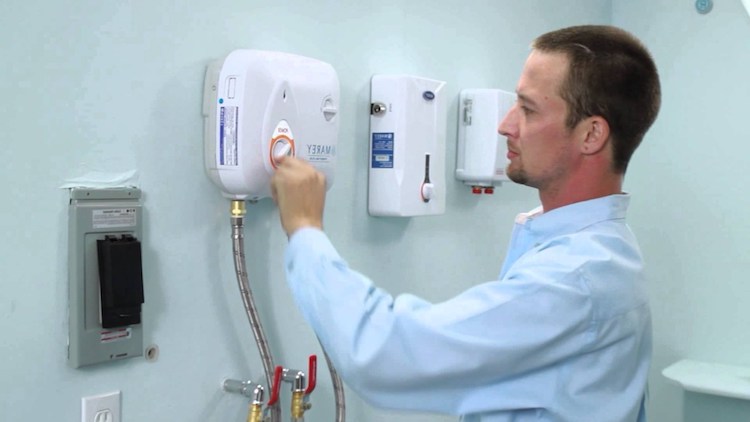electric tankless water heater pros and cons
Pros and Cons of Tankless Water Heaters
1. What are the main advantages of a tankless water heater?
A tankless water heater offers several benefits, including:
- Energy Efficiency: Tankless water heaters are more energy-efficient compared to traditional models, as they heat water on demand without the need for a storage tank.
- Endless Hot Water Supply: With a tankless water heater, you can enjoy a continuous supply of hot water, as it heats water instantly, eliminating the need to wait for a tank to refill.
- Space-saving Design: Tankless water heaters are compact and wall-mounted, freeing up valuable space in your home.

2. Are there any disadvantages to using a tankless water heater?
While tankless water heaters have many advantages, there are a few disadvantages to consider:
- Higher Initial Cost: Tankless water heaters tend to have a higher upfront cost compared to traditional models. However, the long-term energy savings can offset this initial investment.
- Installation Complexity: Installing a tankless water heater may require additional modifications to your home's plumbing and electrical systems, which can increase the installation cost and complexity.
- Flow Rate Limitations: Tankless water heaters have a maximum flow rate, which means they may struggle to provide hot water simultaneously to multiple showers or appliances.
3. How do tankless water heaters save energy?
Tankless water heaters are more energy-efficient because they only heat water when it is needed. Unlike traditional water heaters that continuously heat and store a large volume of water, tankless models heat water on demand. This eliminates standby heat loss, which occurs when the hot water in a tank cools down and has to be reheated.
4. Can a tankless water heater provide enough hot water for a large household?
Tankless water heaters come in different sizes and capacities to meet the hot water demand of various households. Larger units with higher flow rates can easily provide hot water for larger families, but it's important to choose the right size based on your household's needs. Consulting with a professional plumber can help ensure you select the appropriate tankless water heater for your home.
5. Are tankless water heaters more expensive to maintain?
Tankless water heaters generally require minimal maintenance compared to traditional models. However, it is recommended to perform regular maintenance tasks, such as descaling the heat exchanger and flushing the system, to ensure optimal performance. These maintenance tasks can be performed DIY or by a licensed professional.
6. Are tankless water heaters suitable for cold climates?
Tankless water heaters can effectively provide hot water in cold climates as long as they are appropriately sized for the household's needs. However, in extremely cold conditions, the incoming water temperature may be very low, which can affect the unit's ability to heat water to the desired temperature. It is advisable to consult with a professional plumber for guidance on selecting a tankless water heater suitable for your specific climate.
7. Do tankless water heaters require a specific type of gas supply?
Gas-powered tankless water heaters require a dedicated gas supply line and proper venting. It is essential to follow the manufacturer's guidelines and local building codes to ensure safe installation and operation. Consulting with a licensed plumber or HVAC professional is recommended for proper installation.
8. Can tankless water heaters be installed anywhere in the house?
Tankless water heaters can be installed in various locations within a house, provided that the necessary plumbing, gas supply, and electrical requirements are met. Common installation areas include utility closets, basements, garages, or even mounted on exterior walls. It is crucial to ensure proper ventilation and accessibility for maintenance when determining the installation location.
9. Do tankless water heaters come with a warranty?
Yes, most tankless water heaters come with a warranty from the manufacturer. The warranty period may vary depending on the brand and model, typically ranging from 5 to 15 years. It's advisable to research and compare warranties when selecting a tankless water heater, as a longer warranty can provide added peace of mind.
10. Are tankless water heaters suitable for both residential and commercial use?
Yes, tankless water heaters are suitable for both residential and commercial applications. Commercial tankless water heaters are designed to meet the higher hot water demand of businesses, such as hotels, restaurants, or office buildings. These units are typically larger and have a higher flow rate compared to residential models.
11. Can tankless water heaters be used with solar power?
Yes, tankless water heaters can be integrated with solar power systems to further enhance energy efficiency. This combination allows you to harness the renewable energy from the sun to heat your water. However, proper installation and compatibility between the tankless water heater and solar system are crucial. Consultation with a professional plumber and solar installer is recommended.

12. Can tankless water heaters be used as a backup during power outages?
Electric tankless water heaters rely on electricity to operate, so they may not function during power outages unless they are equipped with backup battery systems. Gas-powered tankless water heaters, on the other hand, can continue to provide hot water during power outages, as they do not rely on electricity for heating. It's essential to consider your specific needs and choose a tankless water heater accordingly.